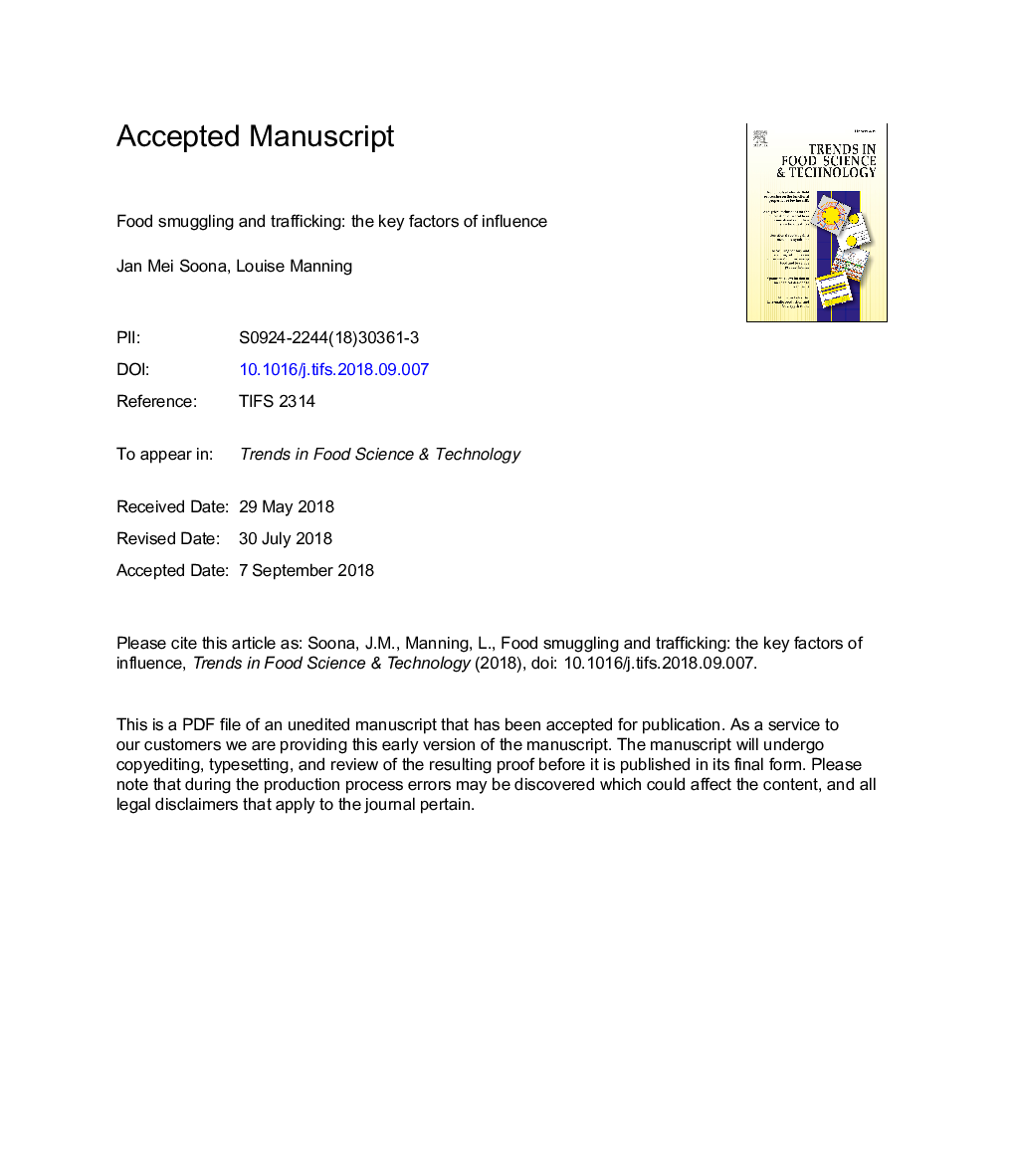| Article ID | Journal | Published Year | Pages | File Type |
|---|---|---|---|---|
| 10143085 | Trends in Food Science & Technology | 2018 | 32 Pages |
Abstract
Illegal imports, especially animal and fish products, can pose a threat to human and animal health, spread animal disease and invasive plant species, and lead to loss of wildlife and biodiversity. Economies are weakened through the tax avoidance and evasion elements of food smuggling and coercive food trafficking. Reported illegal trade in the EU's Risk Assessment for Food and Feed (RASFF) database was highest for meat products followed by fruit and vegetables. Purposive sampling means the data does not reflect the true incidence, extent and type of illegal imports especially by individuals for personal use. There are limited global strategies in place to address food smuggling and trafficking. This work has translated the lessons learnt from the processes developed to reduce tobacco smuggling to illicit activity associated with food. Elements of a comprehensive strategy to address illicit food trade include the developing of effective legal and institutional frameworks in association with effective, transparent communication and cooperation systems. This paper fills a current gap in the academic literature on this topic.
Related Topics
Life Sciences
Agricultural and Biological Sciences
Food Science
Authors
Jan Mei Soon, Louise Manning,
